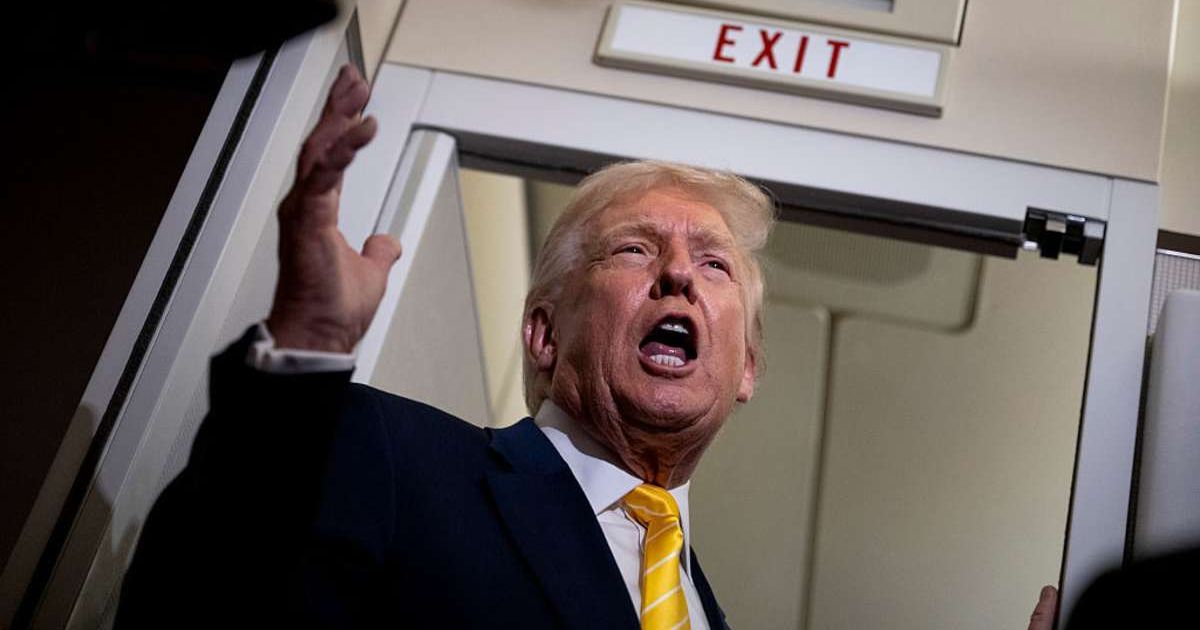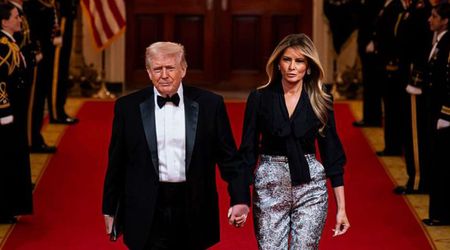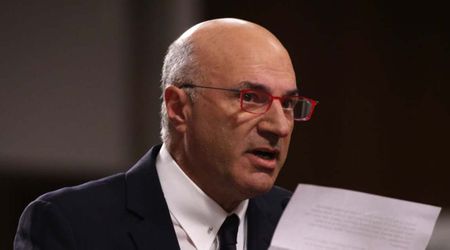Trump calls NYT’s Katie Rogers ‘ugly, inside and out’ days after ‘Piggy’ controversy

WASHINGTON, DC: Donald Trump reignited tensions with the White House press corps after targeting New York Times correspondent Katie Rogers in a fiery Truth Social post on Wednesday, November 26. The president’s remarks, which included calling Rogers “ugly, both inside and out,” came less than two weeks after his controversial “Piggy” comment directed at Bloomberg reporter Catherine Lucey during an exchange aboard Air Force One.
Trump’s latest outburst was in response to a New York Times report examining what it described as the “realities of aging in office,” noting the 79-year-old president’s lighter domestic travel schedule and a viral moment in which he appeared to close his eyes during an official event, something he swiftly denied.
Donald J. Trump Truth Social 11.26.25 05:28 AM EST
— Commentary Donald J. Trump Posts From Truth Social (@TrumpDailyPosts) November 26, 2025
The Creeps at the Failing New York Times are at it again. I won the 2024 Presidential Election in a Landslide, winning all Seven Swing States, the Popular Vote, and the Electoral College by a lot. I one our Nation’s Districts by…
Trump slams Katie Rogers over NYT report on aging
In the post, Trump launched into a lengthy takedown of the newspaper and its reporters. “The Creeps at the Failing New York Times are at it again,” he wrote, before singling out Rogers, who co-authored the story with Dylan Freedman.
“The writer of the story, Katie Rogers, who is assigned to write only bad things about me, is a third-rate reporter who is ugly, both inside and out.”

He also revisited his claims about the 2024 election, insisting he won in a “landslide,” adding that he carried “all Seven Swing States, the Popular Vote, and the Electoral College by a lot.” Trump then touted what he described as the successes of his second term and wrote, “To do this requires a lot of Work and Energy, and I have never worked so hard in my life.”
Calling the article a “hit piece,” Trump labeled the New York Times an “ENEMY OF THE PEOPLE,” echoing rhetoric he has used since his first term.
Rogers has not publicly commented, but the paper responded swiftly to defend her reporting.
New York Times defends Katie Rogers after Trump’s attack
In a statement to PEOPLE, a New York Times spokesperson said, “The Times’s reporting is accurate and built on first-hand reporting of the facts. Name-calling and personal insults don't change that, nor will our journalists hesitate to cover this administration in the face of intimidation tactics like this.”
They added that reporters like Rogers demonstrate how “an independent and free press helps the American people better understand their government and its leaders."

The White House responded with its own statement, defending the president’s blunt tone. “President Trump has never been politically correct, never holds back, and in large part, the American people re-elected him for his transparency,” said White House spokesperson Abigail Jackson, who added, “This has nothing to do with gender, it has everything to do with the fact that the president’s and the public’s trust in the media is at all-time lows.”
Trump’s ‘Piggy’ remark to Catherine Lucey sparks renewed media backlash
The clash with Rogers comes less than two weeks after Trump had a sharp exchange with Bloomberg correspondent Catherine Lucey aboard Air Force One on November 14. When Lucey attempted a follow-up question about Jeffrey Epstein and the release of the Epstein files, Trump abruptly cut her off, telling her, “Quiet. Quiet, Piggy.”
The White House later defended the remark in a statement, saying, “This reporter behaved in an inappropriate and unprofessional way towards her colleagues on the plane. If you’re going to give it, you have to be able to take."

Press Secretary Karoline Leavitt repeated that defense during a November 20 briefing, telling reporters, “Look, the president is very frank and honest with everyone in this room… and I think it’s one of the many reasons the American people re-elected this president, because of his frankness.”

Leavitt added that Trump “calls out fake news when he sees it,” arguing that the president becomes frustrated “when you lie about him” and claiming the administration is more direct with the press than previous ones.
Leavitt went on to contrast the current White House approach with prior administrations, saying, “I think the president being frank and open and honest to your faces, rather than hiding behind your backs, is frankly a lot more respectful.”

She added that frequent exchanges between Trump and the media demonstrate his accessibility. “Everyone in this room should appreciate the frankness and the openness that you get from President Trump on a near-daily basis,” she said.










